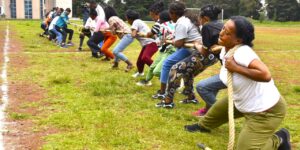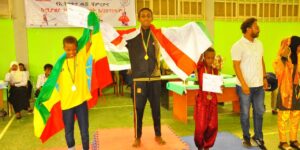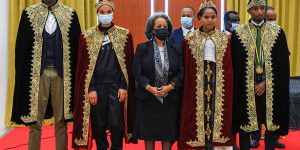The 9th All Gondar Sports Competition: A Celebration of Talent, Unity, and Progress in Ethiopia’s Heartland
In the vibrant city of Gondar, Ethiopia, sport is more than just a game—it’s a catalyst for transformation. The 9th All Gondar Sports Competition brought together athletes, coaches, and communities from across sub-cities like Arada, Azezo Tseda, and beyond, showcasing the power of grassroots initiatives to inspire and unite. From thrilling football rivalries between Arada Sub-City and Gondar University to standout performances in athletics by teams like the Athletics Training Centre, this event highlighted the diversity of talent within the region. Behind every victory were unsung heroes—coaches, judges, and private sector partners like Gondar Printing Company—who worked tirelessly to ensure success. Beyond fostering athletic excellence, the competition underscored how sport can drive socio-economic progress, improve health outcomes, and strengthen civic engagement. As Gondar sets an example for cities worldwide, discover how its community-driven approach is building a brighter future—one stride, one goal, and one victory at a time.
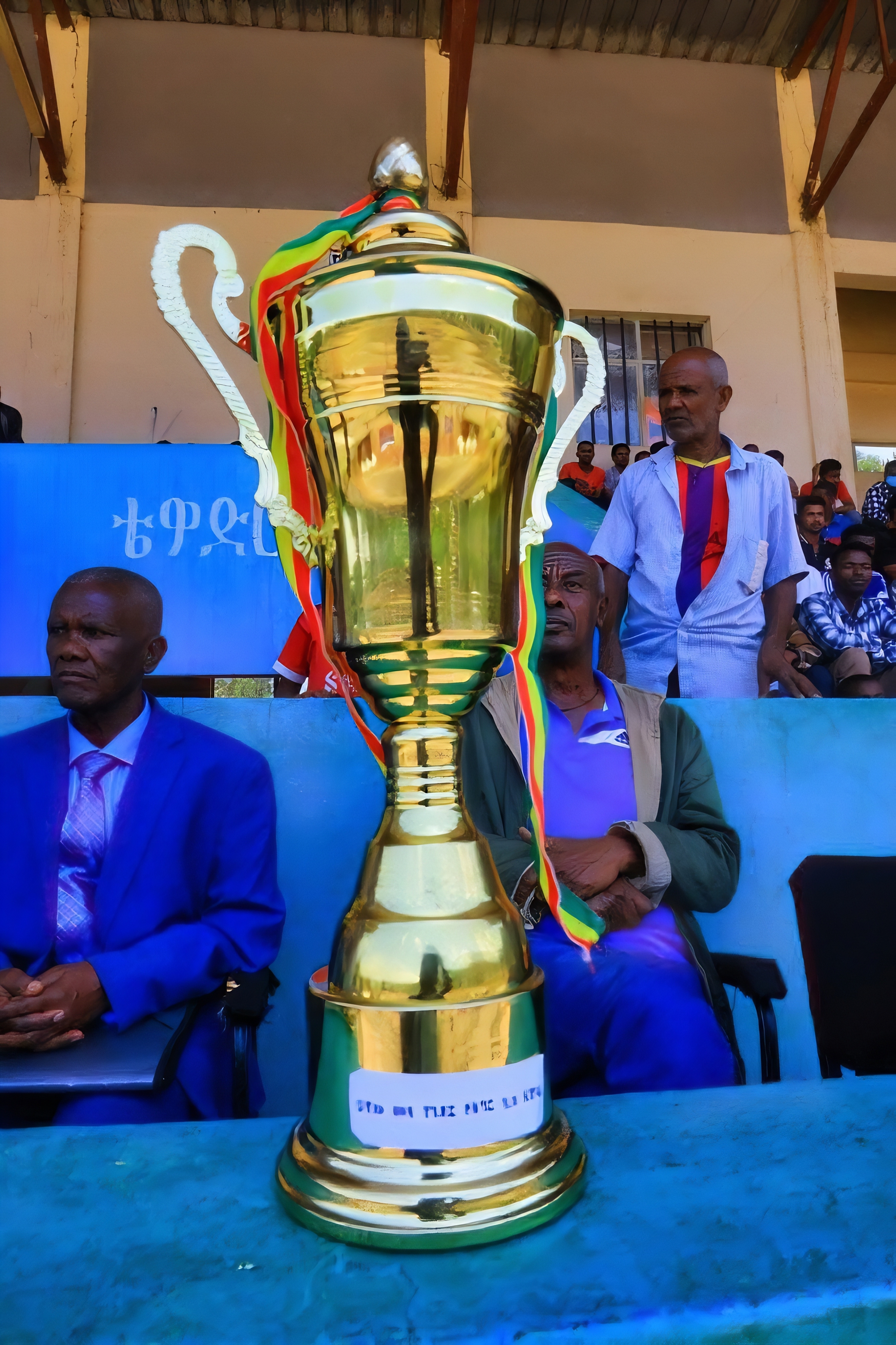
The Role of Local Competitions in Talent Identification: A Gondar Perspective
In the bustling streets and vibrant neighbourhoods of Gondar, Ethiopia, sport is more than just a pastime—it’s a pathway to opportunity. The All Gondar Sports Competition, now in its 9th iteration, has firmly established itself as a cornerstone of talent identification in the region. While the thrill of victory and the joy of participation are undeniable draws, the competition plays an even more profound role: unearthing hidden gems who might one day represent their city—and even their nation—on larger stages.
According to Mr. Maru Muhammed, the Youth and Sports Director of Gondar City Administration, the competition serves as a vital scouting ground for emerging athletes. “These events are not just about celebrating sport; they are about discovering potential,” he explained during the closing ceremony. With the upcoming All Amhara Sports Competition in Dessie on the horizon, Gondar’s local tournament acts as a litmus test, identifying individuals whose skills and determination set them apart. This approach ensures that the city sends its best representatives to compete against other regional powerhouses, fostering a culture of excellence and healthy rivalry.
Grassroots Development: Building a Steady Pipeline
What sets Gondar apart is its commitment to grassroots development. Unlike many cities where elite academies dominate the sporting landscape, Gondar’s model is inclusive, offering opportunities to participants from all walks of life. From the winding alleys of Arada Sub-City to the sprawling fields of Azezo Tseda, young athletes train tirelessly, often with limited resources but boundless enthusiasm. Local competitions like this provide a structured platform for these individuals to showcase their abilities, bridging the gap between raw talent and professional recognition.
Take, for instance, the story of Twfeq Hassan, the Arada Sub-City footballer who earned a special prize for scoring a remarkable goal during the finals. A product of the local football ecosystem, Hassan’s journey exemplifies how grassroots initiatives can nurture talent. “I never imagined I’d be standing here today,” he said humbly after receiving his award. “But thanks to competitions like this, I’ve been given a chance to prove myself.”
Preparing Athletes for Higher Stakes
The significance of such competitions extends beyond individual accolades. They prepare athletes mentally and physically for the rigours of higher-level competition. For example, the month-long schedule of the All Gondar Sports Competition mirrors the demands of regional and national tournaments, teaching participants the importance of endurance, strategy, and teamwork. These lessons are invaluable, particularly for those who aspire to represent Gondar at the All Amhara Sports Competition or even Ethiopia on the international stage.
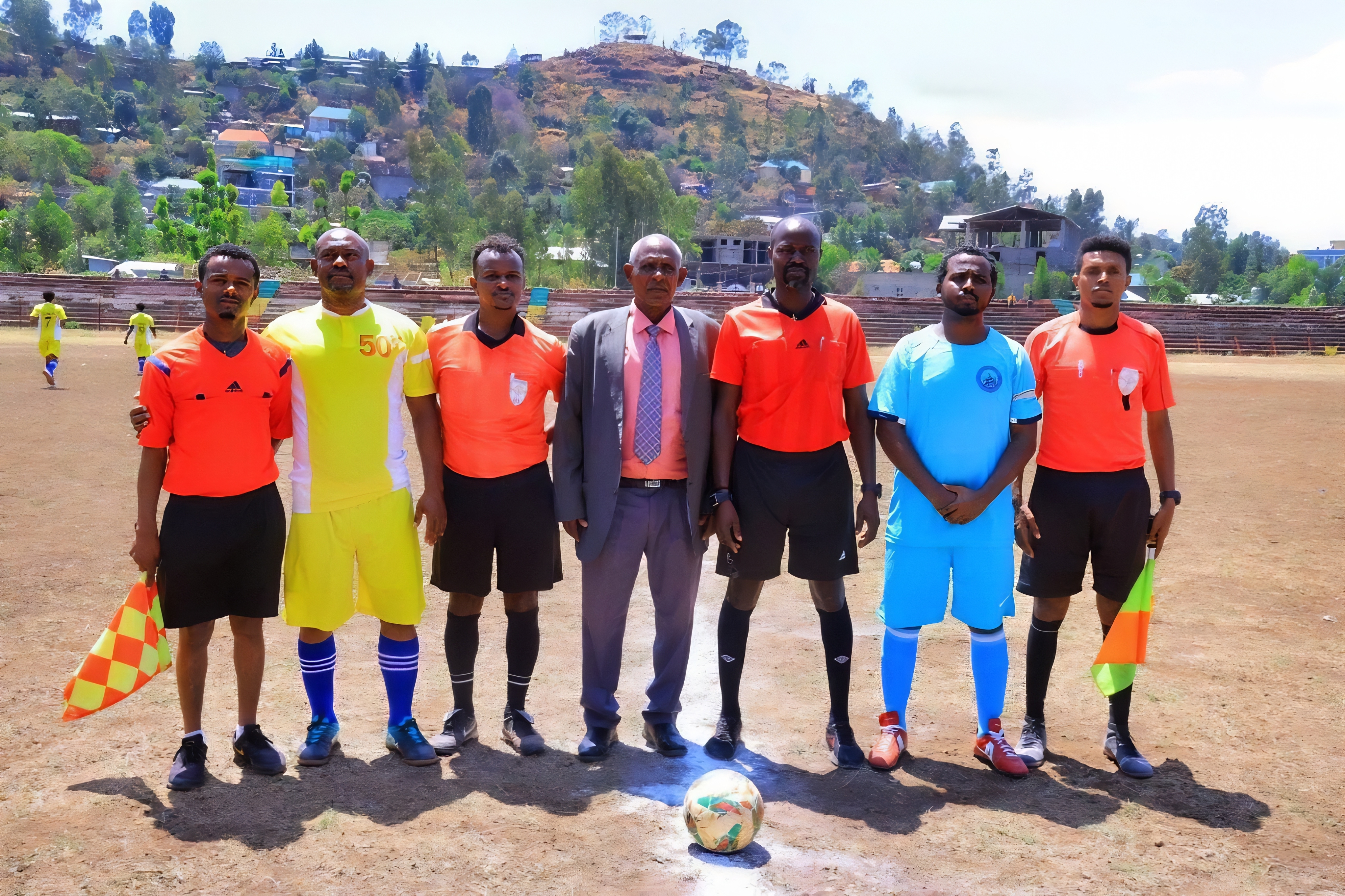
Moreover, the diversity of sports included in the competition—from athletics to football—ensures that talents across various disciplines are recognised. During this year’s event, the Athletics Training Centre dominated the track and field events, securing first place overall. Their success underscores the importance of specialised training centres in honing skills and preparing athletes for greater challenges ahead.
A Model for Other Cities
Gondar’s approach to talent identification offers valuable lessons for other cities in Ethiopia and beyond. By prioritising inclusivity and grassroots development, the city has created a sustainable model that benefits both athletes and the wider community. It also highlights the critical role of local administration and organisers in nurturing talent. Without the vision and dedication of figures like Mr. Maru Muhammed, such initiatives would struggle to gain traction.
As Gondar continues to refine its methods, it stands as a shining example of how local competitions can serve as incubators for future champions. Whether it’s through football matches that electrify the crowd or athletics events that leave spectators breathless, the All Gondar Sports Competition proves time and again that the seeds of greatness often sprout in the most unexpected places.
In conclusion, the All Gondar Sports Competition is far more than a series of games—it is a lifeline for aspiring athletes, a testament to the power of community, and a blueprint for talent identification. As Mr. Maru aptly put it, “Every champion was once an unknown contender. Our job is to ensure no potential goes unnoticed.” And in Gondar, that mission is being fulfilled with passion, purpose, and pride.
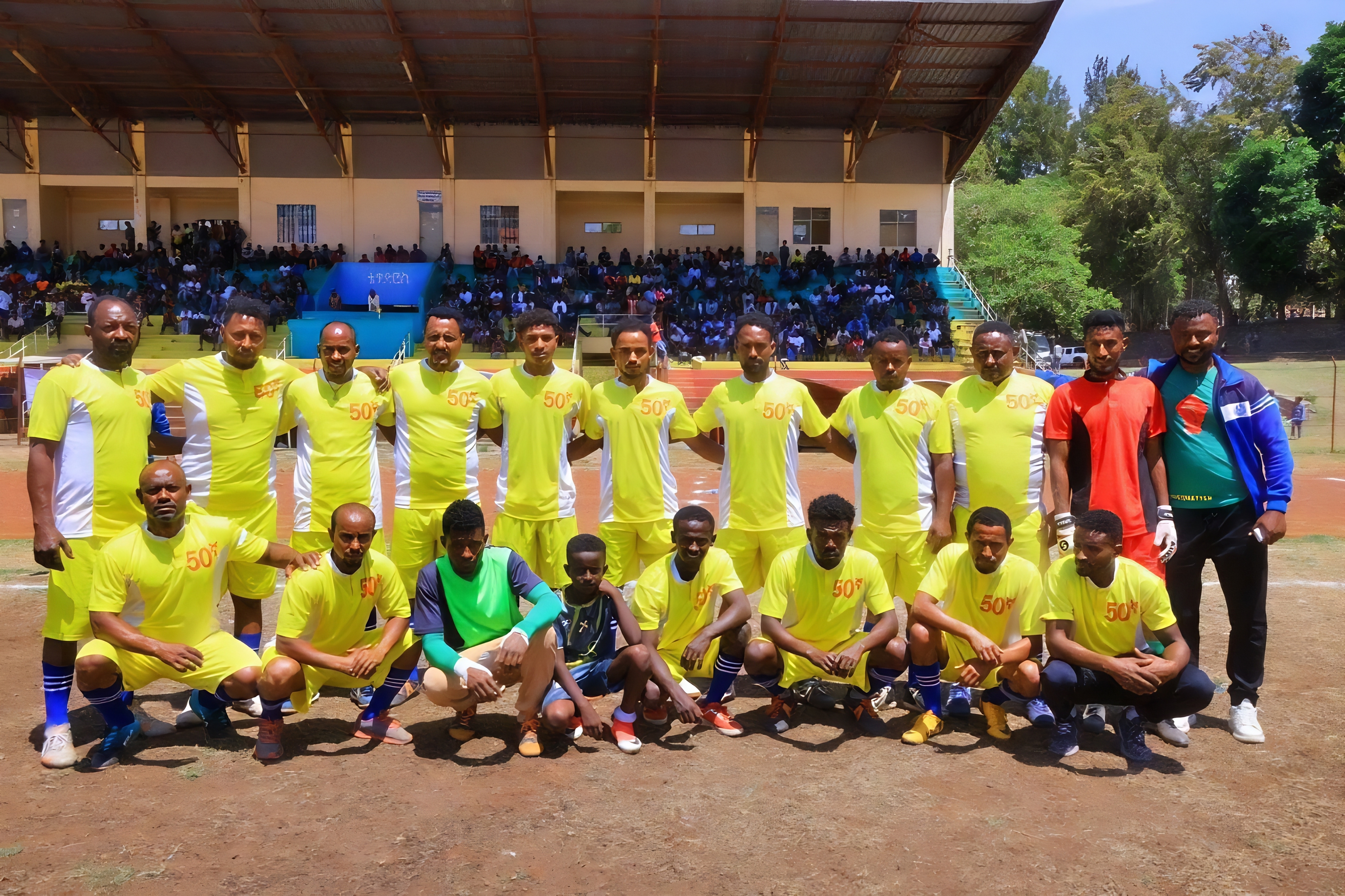
Fostering Unity Through Sub-City Rivalries: The Heartbeat of Gondar’s Sports Culture
In the vibrant tapestry of Gondar’s social fabric, few threads are as vivid and dynamic as the city’s sub-city rivalries. These spirited contests—whether on the football pitch, the athletics track, or the basketball court—are not merely about competition; they are a celebration of identity, resilience, and unity. Nowhere was this more evident than in the electrifying showdown between Arada Sub-City and Gondar University during the 9th All Gondar Sports Competition. Their football match, which culminated in a thrilling 3-1 victory for Arada, encapsulated the essence of what makes these rivalries so special: they transcend mere wins and losses, fostering camaraderie, mutual respect, and a profound sense of belonging.
A Clash of Titans: Arada vs. Gondar University
The final match between Arada Sub-City and Gondar University was nothing short of a spectacle. From the opening whistle, the energy in the stadium was palpable, with fans from both sides filling the stands with chants, cheers, and the rhythmic beating of drums. For Arada, the victory was not just a triumph of skill but also a testament to their determination and teamwork. Meanwhile, Gondar University’s valiant effort, despite the loss, earned them widespread admiration. As one spectator remarked, “It didn’t matter who won or lost at the end of the day—it was the passion and spirit that brought us all together.”
This sentiment speaks volumes about the role such rivalries play in uniting communities. While the teams may compete fiercely on the field, off it, they share a common bond rooted in pride for their city and its rich cultural heritage. These matches are not isolated events; they are part of a larger narrative that celebrates Gondar’s diversity while reinforcing its shared identity.
Healthy Competition: A Catalyst for Unity
At first glance, rivalries might seem divisive, pitting one group against another. However, in Gondar, these contests serve as a unifying force. Healthy competition encourages individuals to push their limits, fostering personal growth while simultaneously strengthening community ties. For instance, during the football match, supporters from both Arada and Gondar University mingled freely in the stands, exchanging banter and laughter. Even after the final whistle blew, the atmosphere remained convivial, with fans congratulating each other on a game well played.
Such interactions highlight an important truth: rivalry does not have to breed animosity. Instead, when approached with respect and sportsmanship, it can become a powerful tool for building bridges. Mr. Maru Muhammed, the Youth and Sports Director of Gondar City Administration, echoed this sentiment: “Rivalries remind us of our shared humanity. They challenge us to be better, not just as athletes but as members of a community.”
Celebrating Shared Identities
Sub-city rivalries also offer a platform for celebrating the unique identities of Gondar’s diverse neighbourhoods. Each sub-city brings its own flair to the competition, whether through traditional chants, colourful banners, or distinctive playing styles. Arada Sub-City, known for its bustling markets and historic landmarks, is often associated with grit and determination—a reputation cemented by their hard-fought victory over Gondar University. On the other hand, Gondar University represents the city’s intellectual hub, bringing a youthful exuberance and technical precision to their gameplay.
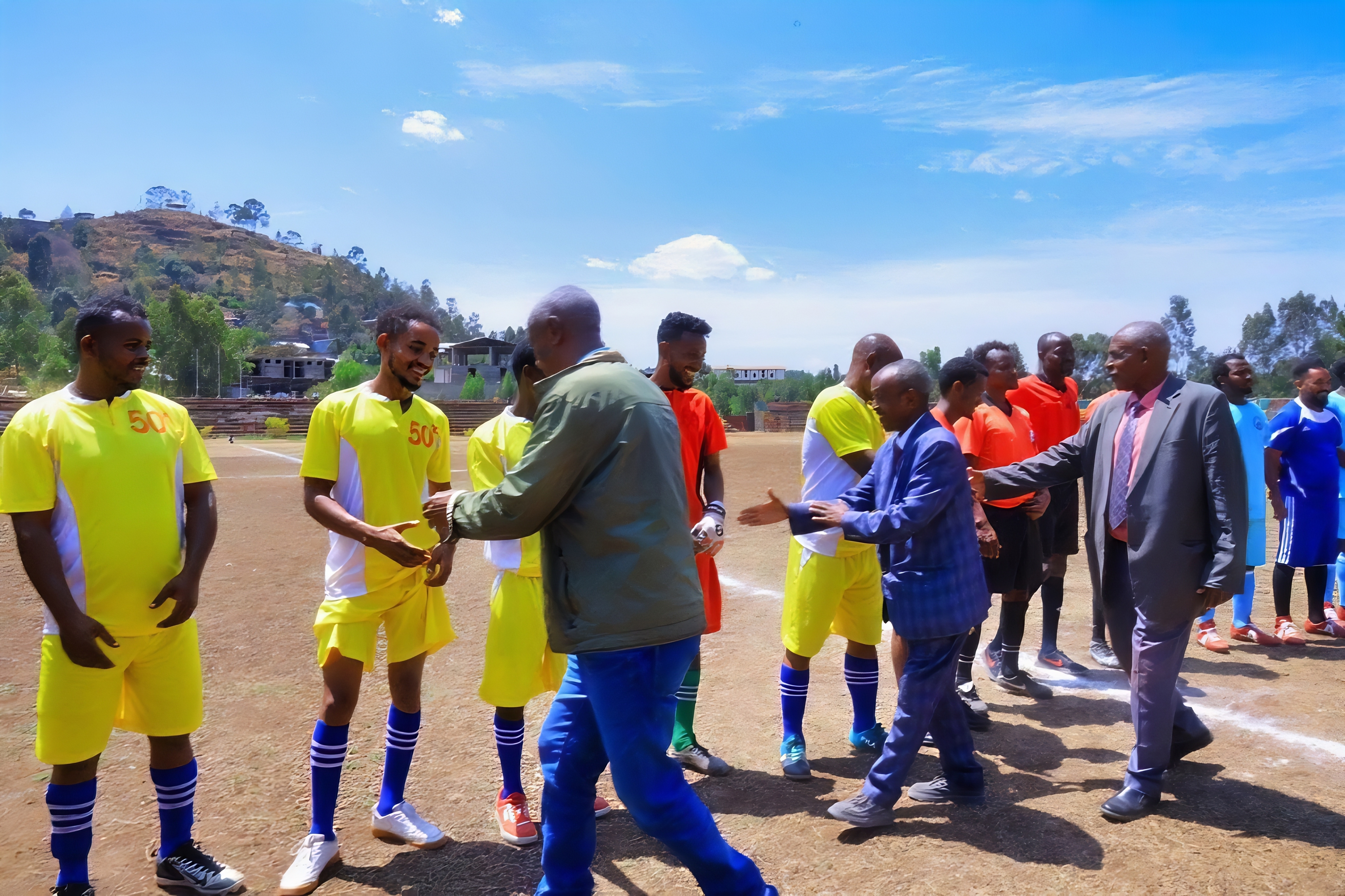
These differences enrich the competition, creating a mosaic of experiences that reflect Gondar’s multifaceted character. By embracing their individuality while participating in a collective endeavour, the sub-cities demonstrate how diversity can strengthen rather than divide.
Beyond the Pitch: Strengthening Community Bonds
The impact of these rivalries extends far beyond the confines of the sports arena. They inspire civic engagement, drawing people from all walks of life into the fold. Local businesses thrive as fans flock to nearby cafes and shops before and after matches, while schools and youth groups organise viewing parties to cheer on their favourite teams. In doing so, the competition becomes a catalyst for economic and social activity, knitting the community closer together.
Moreover, these events provide an opportunity for intergenerational connection. Elders regale younger generations with tales of past glories, passing down stories that keep the spirit of Gondar alive. Meanwhile, children dream of emulating their heroes, aspiring to one day don the jersey of their beloved sub-city or university. This cycle of inspiration ensures that the legacy of Gondar’s sports culture endures.
Lessons for Other Cities
Gondar’s approach to fostering unity through sub-city rivalries offers valuable insights for other cities grappling with division or disconnection. By channelling competitive energy into positive outlets, communities can transform potential conflict into collaboration. The key lies in promoting inclusivity and ensuring that everyone—regardless of age, background, or ability—feels welcome to participate.
As the sun set over Gondar following Arada’s triumphant victory, the scene painted a picture of harmony amidst diversity. Fans from both sides lingered in the stadium, sharing stories and forging new friendships. It was a poignant reminder that, at its core, sport is about more than winning or losing—it’s about bringing people together. And in Gondar, where rivalries are celebrated as much as victories, the spirit of unity shines brighter than ever.
In conclusion, the rivalry between Arada Sub-City and Gondar University exemplifies how healthy competition can foster unity, celebrate shared identities, and strengthen community bonds. Far from being divisive, these contests are a testament to the power of sport to unite people across differences, reminding us that, in Gondar, every match is not just a game—it’s a celebration of life itself.
Recognition of Unsung Heroes: The Backbone of Gondar’s Sporting Success
While the roar of the crowd and the thrill of victory often centre on the athletes, it is important to remember that every sporting event relies on an intricate web of unsung heroes working tirelessly behind the scenes. In Gondar, this truth was brought to the forefront during the closing ceremony of the 9th All Gondar Sports Competition, where judges, coaches, coordinators, and supporting organisations were honoured for their invaluable contributions. These individuals, though rarely in the spotlight, are the backbone of any successful competition, ensuring that events run smoothly and that participants can focus on giving their best performance. Their recognition serves as a poignant reminder that sports are not merely about individual brilliance but a collective endeavour requiring collaboration at every level.
The Invisible Hands Behind the Scenes
Imagine a football match without referees, a race without timekeepers, or a team without a coach. Such scenarios highlight the indispensable role played by those who work behind the scenes. At the All Gondar Sports Competition, these unsung heroes ensured that every aspect of the event—from scheduling matches to enforcing rules—was executed with precision and fairness. For instance, the judges meticulously monitored each race, ensuring accurate timing and adherence to regulations, while coordinators worked tirelessly to manage logistics, from arranging transportation for teams to setting up equipment at venues.
One such hero was Coach Abebech Kebede, who led the Arada Sub-City football team to their hard-fought 3-1 victory over Gondar University. Though her name may not appear in headlines, her strategic guidance and unwavering support were instrumental in the team’s success. “Coaching is not just about tactics,” she explained during the ceremony. “It’s about believing in your players and helping them believe in themselves.” Her words capture the essence of what makes coaches—and all those working behind the scenes—so vital to the world of sport.
Celebrating Support Networks
The closing ceremony also recognised the contributions of organisations that supported the competition, including local businesses, government offices, and development agencies. Mr. Amare Mesfin, General Manager of Gondar Printing Company, was among those honoured for his company’s commitment to sponsoring sporting initiatives in the city. “Sport is not just about athletes; it’s about communities coming together,” he said. “Our role is to ensure that everyone has the resources they need to succeed.”
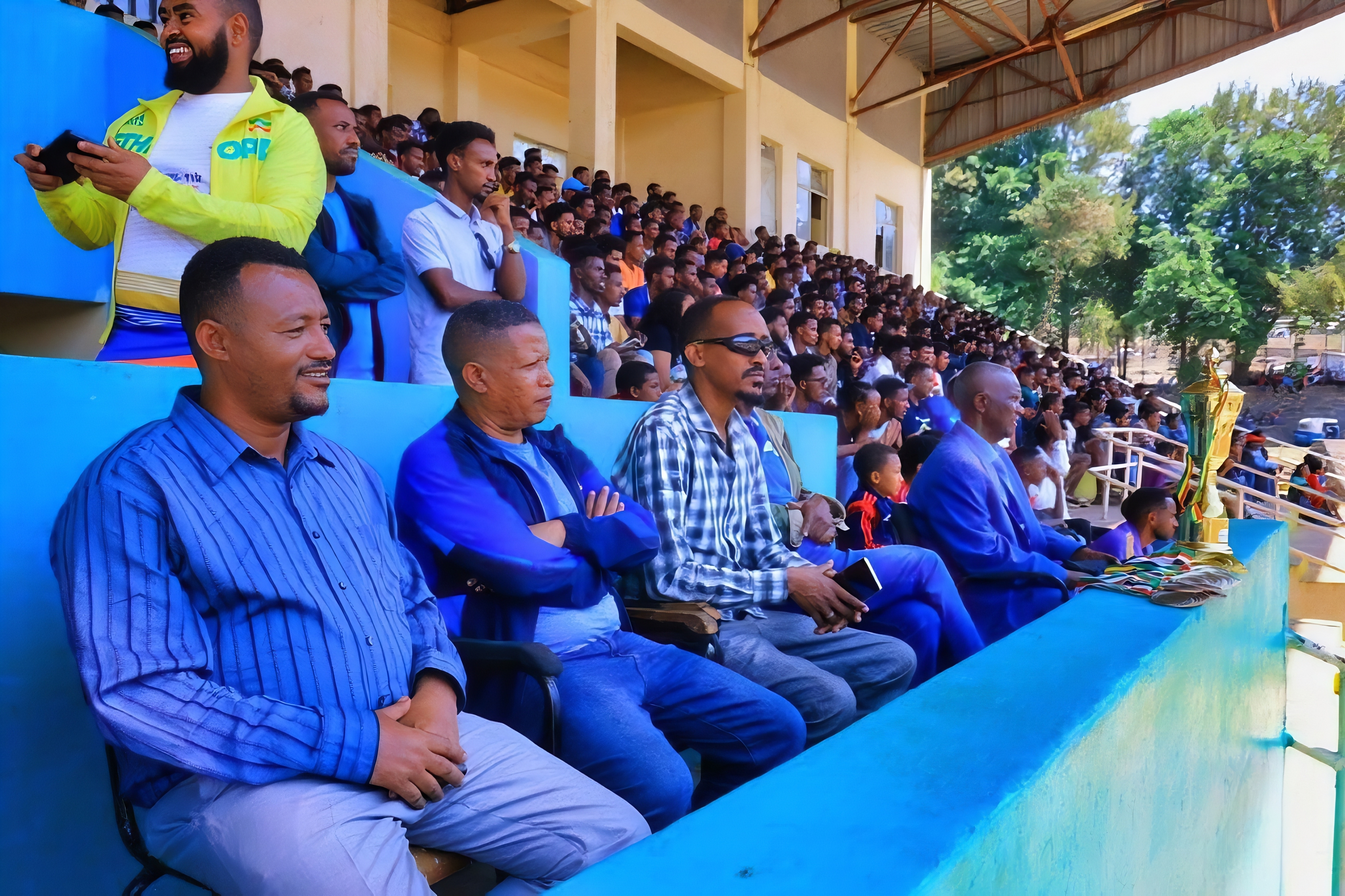
Such partnerships underscore the importance of collaboration in fostering a thriving sports culture. Without the financial backing and logistical support provided by these organisations, many events would struggle to materialise. By acknowledging their efforts, Gondar sends a powerful message: sports are a shared responsibility, and every contribution matters.
Reinforcing the Collective Spirit of Sport
Highlighting the work of unsung heroes reinforces the idea that sport is inherently collaborative. Every goal scored, every race won, and every trophy lifted is the result of countless hours of preparation and teamwork—not just on the field but off it as well. This perspective shifts the narrative away from individual accolades and towards a more holistic appreciation of what makes sport so impactful.
Consider the example of the athletics training centre, which claimed first place in the track and field events. While the athletes’ performances were undoubtedly impressive, their success would not have been possible without the dedication of their trainers, physiotherapists, and administrative staff. Similarly, the seamless organisation of the entire competition—from registration to awards ceremonies—was made possible by the tireless efforts of coordinators and volunteers who worked long hours to ensure everything ran smoothly.
A Lesson in Gratitude and Humility
By honouring these unsung heroes, Gondar teaches an important lesson in gratitude and humility. Athletes, no matter how talented, cannot achieve greatness alone. They rely on a network of individuals who share their vision and invest their time and energy into making dreams a reality. Recognising this interconnectedness fosters a culture of mutual respect and appreciation, both within the sporting community and beyond.
For young athletes watching the ceremony, seeing judges, coaches, and organisers receive certificates of appreciation sends a powerful message: there are many ways to contribute to the world of sport, and every role is worthy of recognition. Whether it’s keeping score, offering guidance, or simply cheering from the sidelines, everyone has a part to play in creating something extraordinary.
Inspiring Future Generations
The acknowledgment of unsung heroes also serves as an inspiration for future generations. Young people attending the competition witnessed firsthand the value placed on teamwork and collaboration. They saw that success is not defined solely by medals or trophies but by the collective effort required to achieve them. This understanding encourages them to consider roles beyond being athletes—perhaps as coaches, referees, or administrators—ensuring the sustainability of Gondar’s sporting ecosystem.
Conclusion: Honouring the Pillars of Progress
In Gondar, the recognition of unsung heroes is not just a gesture of gratitude; it is a celebration of the values that underpin sport itself—teamwork, dedication, and inclusivity. As the city continues to nurture its sporting culture, it sets an example for others to follow: true progress is achieved when we acknowledge and celebrate the contributions of all, not just those in the limelight.
As the closing ceremony drew to a close, the applause for these unsung heroes reverberated through the stadium—a fitting tribute to the men and women whose quiet determination ensures that Gondar’s sporting legacy endures. After all, in the grand tapestry of sport, every thread matters, and it is the combined strength of these threads that creates something truly remarkable.
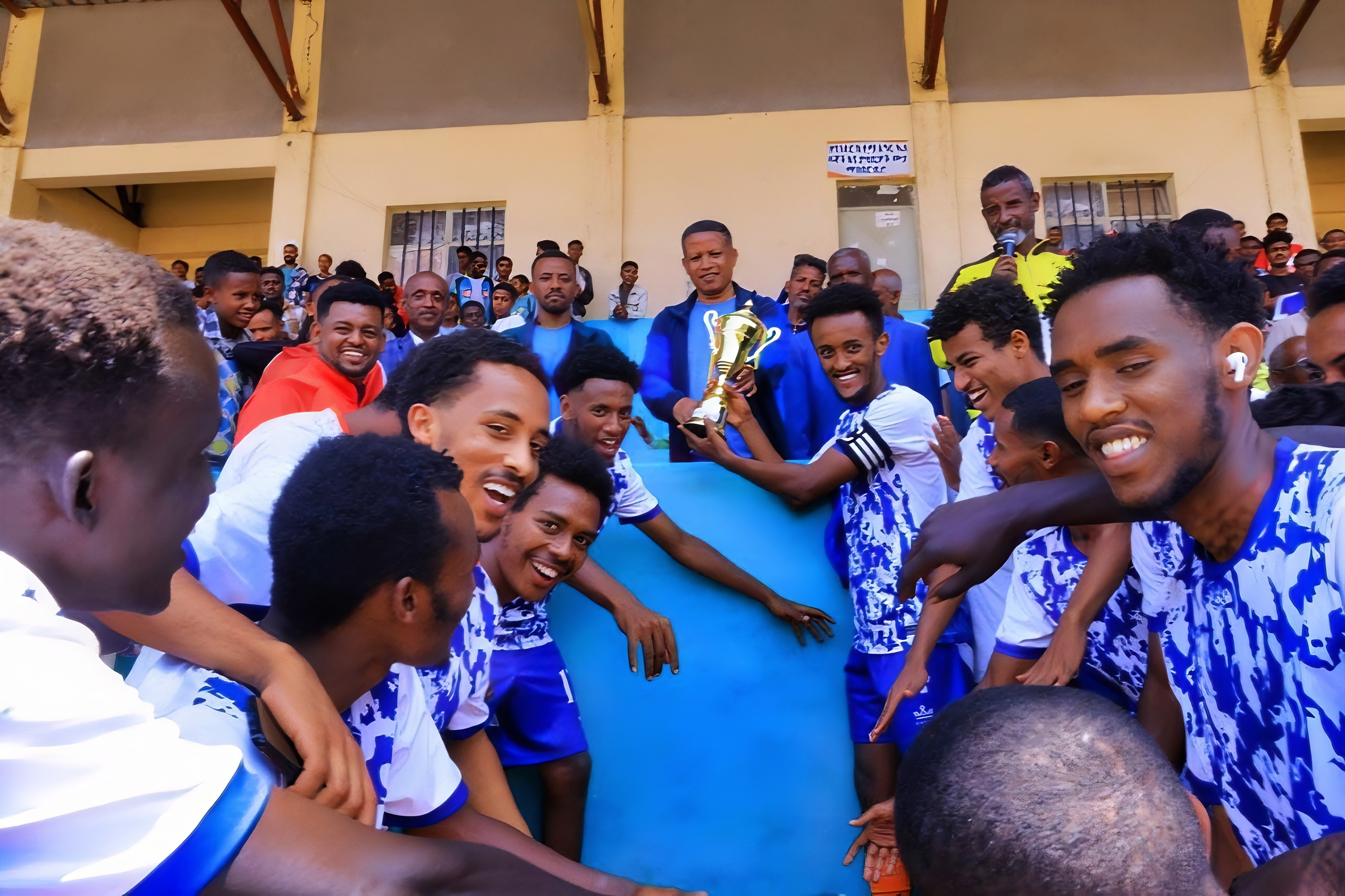
Athletics Excellence Across Sub-Cities: Showcasing Gondar’s Diverse Talent
The 9th All Gondar Sports Competition was not just a celebration of individual prowess, but also a testament to the rich diversity of athletic talent spread across the city’s sub-cities. The achievements of teams like the Athletics Training Centre (first place), Azezo Tseda Sub-City (second place), and Arada Sub-City (third place) highlighted how geography, resources, and community support can shape athletic success. These performances underscored an important truth: fostering excellence in athletics requires equitable investment in infrastructure and training facilities across all sub-cities, ensuring that no aspiring athlete is left behind.
A Showcase of Athletic Brilliance
The athletics events at the competition were nothing short of spectacular, drawing participants from every corner of Gondar. Each sub-city brought its own unique energy and style to the track and field, showcasing the depth of talent within the region. The Athletics Training Centre, with its state-of-the-art facilities and rigorous coaching programmes, emerged victorious, securing first place overall. Their athletes demonstrated exceptional technique and endurance, setting new benchmarks for future competitions.
However, what made this year’s results particularly noteworthy was the impressive showing by Azezo Tseda Sub-City and Arada Sub-City. Despite having fewer resources compared to the Athletics Training Centre, these sub-cities proved that determination and grit can rival even the most privileged competitors. Azezo Tseda’s second-place finish, achieved through consistent performances in sprints and long-distance races, was a testament to their resilience. Meanwhile, Arada Sub-City’s third-place standing highlighted their ability to punch above their weight, leveraging teamwork and strategic preparation to secure valuable points.
The Importance of Equitable Investment
While the achievements of these sub-cities are commendable, they also shine a light on the disparities in access to resources and training facilities. The Athletics Training Centre’s dominance is partially attributable to its well-equipped infrastructure and experienced coaching staff—advantages that many other sub-cities lack. For instance, athletes from Azezo Tseda often train on makeshift tracks or uneven fields, relying on sheer willpower to overcome these challenges. Similarly, Arada Sub-City’s athletes have limited access to specialised equipment, forcing them to innovate and adapt.
This disparity underscores the urgent need for equitable investment in sports infrastructure across Gondar. As Mr. Maru Muhammed, the Youth and Sports Director of Gondar City Administration, pointed out during the awards ceremony, “Talent exists everywhere, but opportunity does not. If we want to nurture our athletes and ensure they reach their full potential, we must provide them with the tools and environments they need to succeed.”
Investing in facilities such as running tracks, gyms, and rehabilitation centres would level the playing field, enabling athletes from all sub-cities to compete on equal terms. Moreover, initiatives like mobile coaching clinics could bring expert guidance directly to underserved areas, bridging the gap between ambition and achievement.
Celebrating Diversity in Athletic Pursuits
One of the most inspiring aspects of the competition was the variety of disciplines in which athletes excelled. From sprinting and middle-distance running to long jump and shot put, each event showcased different facets of athleticism. For example, Azezo Tseda’s standout performer, Yohannes Tadesse, claimed gold in the 5,000-metre race, demonstrating his mastery of endurance. Meanwhile, Arada Sub-City’s Meseret Abebe dazzled spectators with her explosive speed in the 100-metre dash, earning silver and cementing her reputation as one of the fastest runners in the city.
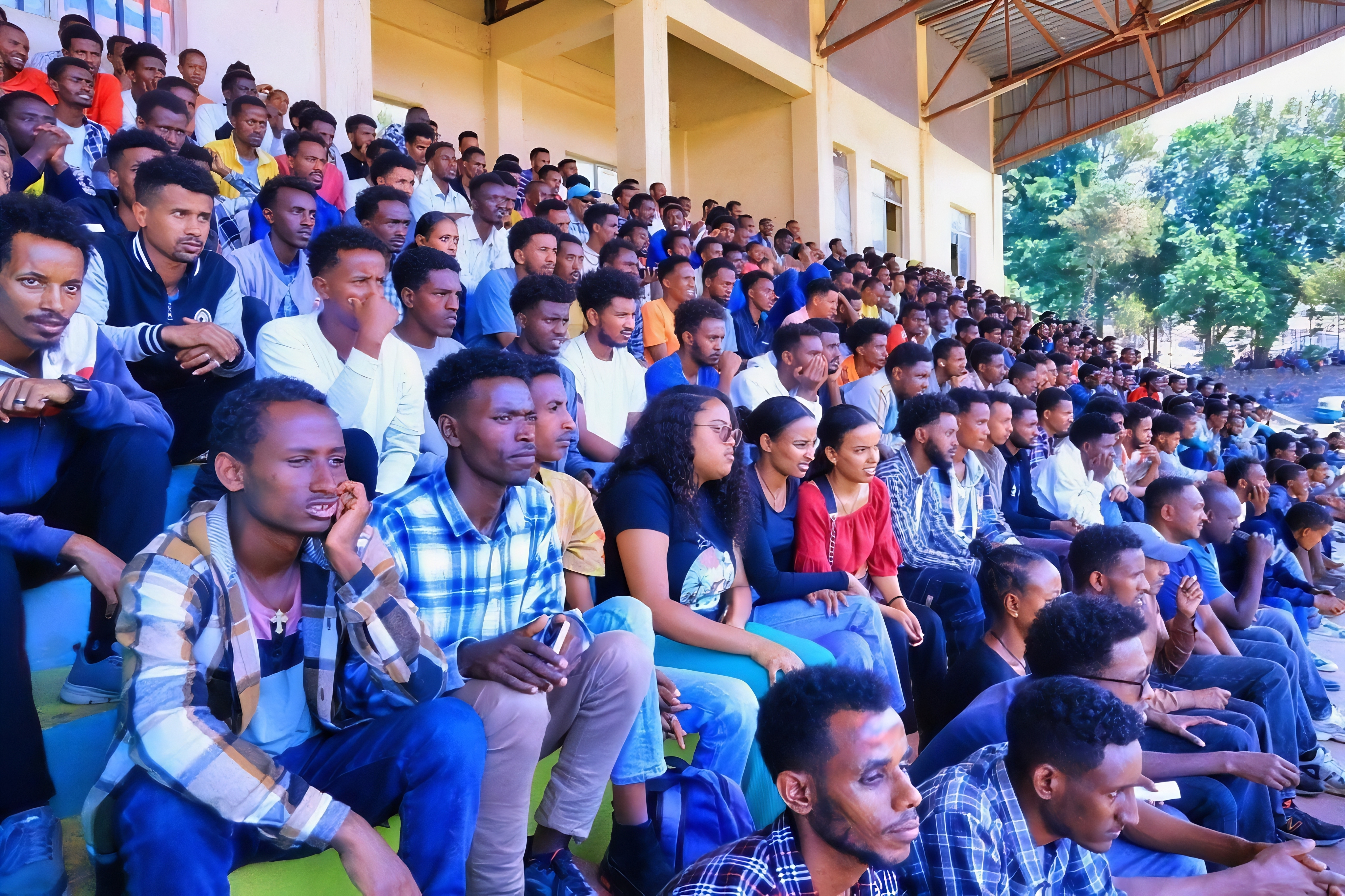
These diverse talents reflect the broader cultural and geographical influences within Gondar. Athletes from rural sub-cities like Azezo Tseda often excel in long-distance events, drawing strength from their upbringing in hilly terrains where endurance is a way of life. In contrast, urban sub-cities like Arada benefit from proximity to organised training groups and mentorship programmes, which help refine technical skills. By celebrating this diversity, Gondar reinforces the idea that there is no single path to greatness—each sub-city contributes uniquely to the city’s sporting identity.
Building a Unified Sporting Ecosystem
To truly harness the potential of Gondar’s athletes, it is essential to build a unified sporting ecosystem that connects sub-cities and fosters collaboration. For instance, partnerships between established institutions like the Athletics Training Centre and emerging hubs like Azezo Tseda could create mentorship opportunities, allowing younger athletes to learn from seasoned professionals. Additionally, inter-sub-city tournaments held throughout the year could serve as platforms for continuous learning and improvement, preparing athletes for larger competitions like the All Amhara Sports Competition.
Local businesses and development organisations also have a critical role to play in supporting this vision. Companies like Gondar Printing Company, which has already demonstrated its commitment to sports development, could expand their sponsorship efforts to include infrastructure projects in underserved areas. Such investments would benefit athletes and strengthen community ties, fostering a sense of shared pride and ownership.
Inspiring Future Generations
The success stories of athletes from Azezo Tseda and Arada Sub-City serve as powerful inspiration for young people across Gondar. When children see someone from their neighbourhood competing—and succeeding—at a high level, it ignites a belief that they too can achieve greatness. This ripple effect is crucial for sustaining long-term interest in athletics and ensuring a steady pipeline of talent.
Moreover, recognising and rewarding excellence across all sub-cities sends a clear message: success is not defined by where you come from but by your dedication and hard work. Whether it’s the gleaming trophy awarded to the Athletics Training Centre or the heartfelt applause for Azezo Tseda’s underdog triumph, every achievement deserves celebration.
Conclusion: Towards a Brighter Future for Gondar’s Athletes
The performances of the Athletics Training Centre, Azezo Tseda Sub-City, and Arada Sub-City at the 9th All Gondar Sports Competition illuminated the incredible breadth of talent within the city. However, they also revealed the pressing need for equitable investment in infrastructure and training facilities to ensure that every aspiring athlete has the opportunity to thrive.
By addressing these disparities and fostering collaboration across sub-cities, Gondar can unlock its full athletic potential, nurturing champions who will represent the city—and perhaps even Ethiopia—on national and international stages. After all, when we invest in sport, we invest in people, communities, and the future itself. And in Gondar, where the spirit of unity and excellence shines so brightly, the possibilities are limitless.
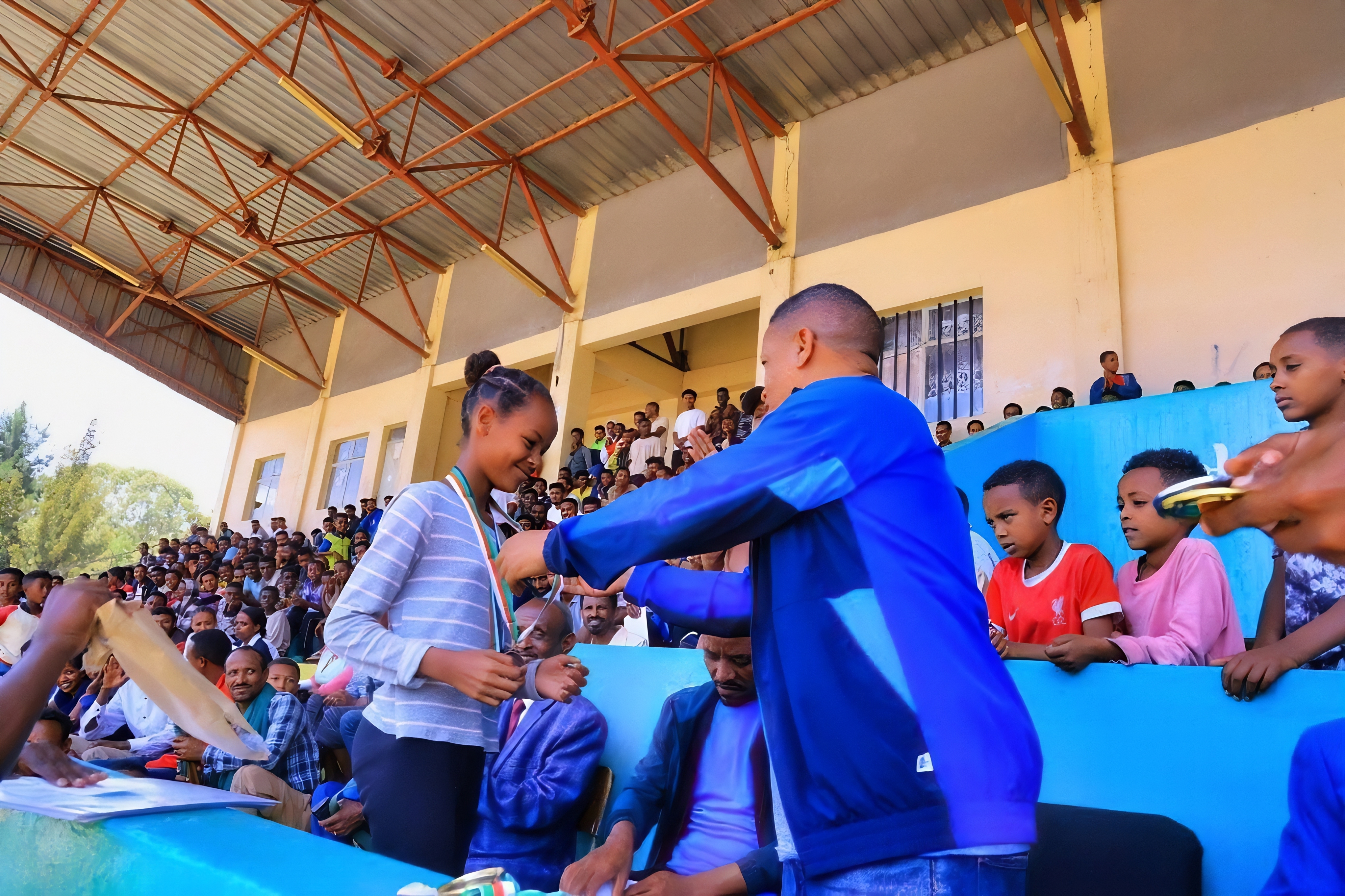
Special Recognition for Outstanding Performances: Celebrating Individual Brilliance Amidst Team Triumphs
In the world of sport, there exists a delicate balance between collective effort and individual brilliance. At the 9th All Gondar Sports Competition, this dynamic was beautifully encapsulated through moments of exceptional achievement that transcended the boundaries of teamwork. Twfeq Hassan of Arada Sub-City Football Team and Gondar University Football Club’s triumphant victory in the finals exemplified how personal excellence and team success can coexist harmoniously, leaving an indelible mark on both participants and spectators alike.
Twfeq Hassan: A Moment of Genius
Twfeq Hassan’s name will forever be etched in the annals of Gondar’s sporting history—not just because he scored a goal, but because he scored a remarkable one. In the semi-final match against a formidable opponent, Hassan executed a breathtaking strike from thirty yards out, curving the ball into the top corner with pinpoint precision. The crowd erupted in awe, and even his opponents could not help but applaud the sheer audacity of the attempt.
This moment of brilliance earned Hassan a special prize during the closing ceremony—a recognition not only of his skill but also of the inspiration he provided to aspiring athletes across the city. As he humbly accepted the award, Hassan reflected on the significance of such achievements. “Scoring a goal like that is not just about me,” he said. “It’s about showing everyone—especially the young ones—that if you believe in yourself and work hard, anything is possible.”
Hassan’s story serves as a powerful reminder that while football is inherently a team sport, individual acts of genius can elevate the game to new heights. His performance inspired teammates and rivals alike, proving that one person’s brilliance can galvanise an entire squad and ignite passion among fans.
Gondar University Football Club: Claiming the Coveted Gold Cup
While Hassan’s goal was a standout moment, the ultimate prize went to Gondar University Football Club, who claimed the gold cup after defeating Arada Sub-City in a fiercely contested final. Despite losing 3-1 on the day, Arada’s spirited performance throughout the tournament ensured they remained a formidable contender until the very end. However, it was Gondar University’s tactical discipline, technical finesse, and unwavering determination that ultimately secured their place atop the podium.
The university team’s journey to victory was marked by moments of exceptional teamwork, but it was their ability to adapt under pressure that truly set them apart. In the final match, their midfield maestro, Yonas Gebre, orchestrated play with surgical precision, setting up crucial goals and stifling Arada’s attacks. Meanwhile, goalkeeper Elias Kebede made several acrobatic saves, earning him the nickname “The Wall of Gondar” among ecstatic supporters.
Yet, even in defeat, Arada Sub-City demonstrated remarkable sportsmanship, congratulating their opponents and vowing to return stronger next year. This mutual respect underscored the true spirit of competition, where victories are celebrated, and defeats are considered stepping stones to future success.
Balancing Team Effort with Individual Excellence
Moments like Hassan’s extraordinary goal and Gondar University’s cohesive triumph highlight the symbiotic relationship between individual brilliance and team effort. While football is often described as the ultimate team sport, requiring eleven players to function as a single unit, it is also a stage for individuals to showcase their unique talents. These performances remind us that greatness is rarely achieved in isolation; instead, it emerges when personal ambition aligns seamlessly with collective purpose.
For example, Hassan’s stunning goal may have been a solo effort, but it was made possible by the tireless running of his teammates, who drew defenders away and created space for him to unleash his shot. Similarly, Gondar University’s success was built on countless hours of training, strategic planning, and selfless contributions from every member of the squad. As Coach Solomon Bekele noted during the trophy presentation, “Every player on this team played their part. No single person wins a championship—it takes all of us working together.”
Inspiring Others to Push Beyond Limits
One of the most profound impacts of recognising outstanding performances is the ripple effect it creates. When young athletes witness moments of brilliance—whether it’s a spectacular goal or a perfectly executed pass—they are inspired to push beyond their own limits. For many children watching the competition, Hassan’s goal became a symbol of what is possible with dedication and creativity. Likewise, Gondar University’s triumph reinforced the importance of perseverance and unity in achieving shared goals.
These stories resonate deeply in Gondar, a city where sport plays a central role in shaping aspirations and fostering community pride. By celebrating individual achievements alongside team successes, organisers send a clear message: excellence comes in many forms, and every contribution matters.
A Legacy of Inspiration
The recognition of Twfeq Hassan and Gondar University Football Club extends beyond mere accolades—it leaves a lasting legacy. Their achievements will be recounted in schools, community centres, and coffee shops across Gondar, inspiring future generations to dream big and strive for greatness. Moreover, these moments reinforce the idea that sport is not just about winning trophies; it’s about creating memories, forging connections, and building a sense of identity.
As the sun set on the final day of the competition, the stadium buzzed with conversations about Hassan’s iconic goal and Gondar University’s historic victory. Fans lingered long after the awards ceremony, reliving the highlights and speculating about next year’s contenders. It was a fitting conclusion to an event that had brought people together, united by their love of sport and admiration for those who excel within it.
Conclusion: Honouring Excellence, Igniting Dreams
Special recognition for outstanding performances like Twfeq Hassan’s remarkable goal and Gondar University Football Club’s gold cup triumph serves as a beacon of hope and inspiration. These moments remind us that sport is a platform for showcasing human potential, where individual brilliance and team effort converge to create something extraordinary.
In Gondar, where the spirit of competition runs deep, such recognitions are more than just rewards—they are catalysts for change. They inspire young athletes to believe in themselves, encourage communities to rally behind their heroes, and remind us all that greatness is within reach if we dare to pursue it. And so, as the echoes of cheers fade into memory, the legacy of these achievements live on, lighting the way for tomorrow’s champions.
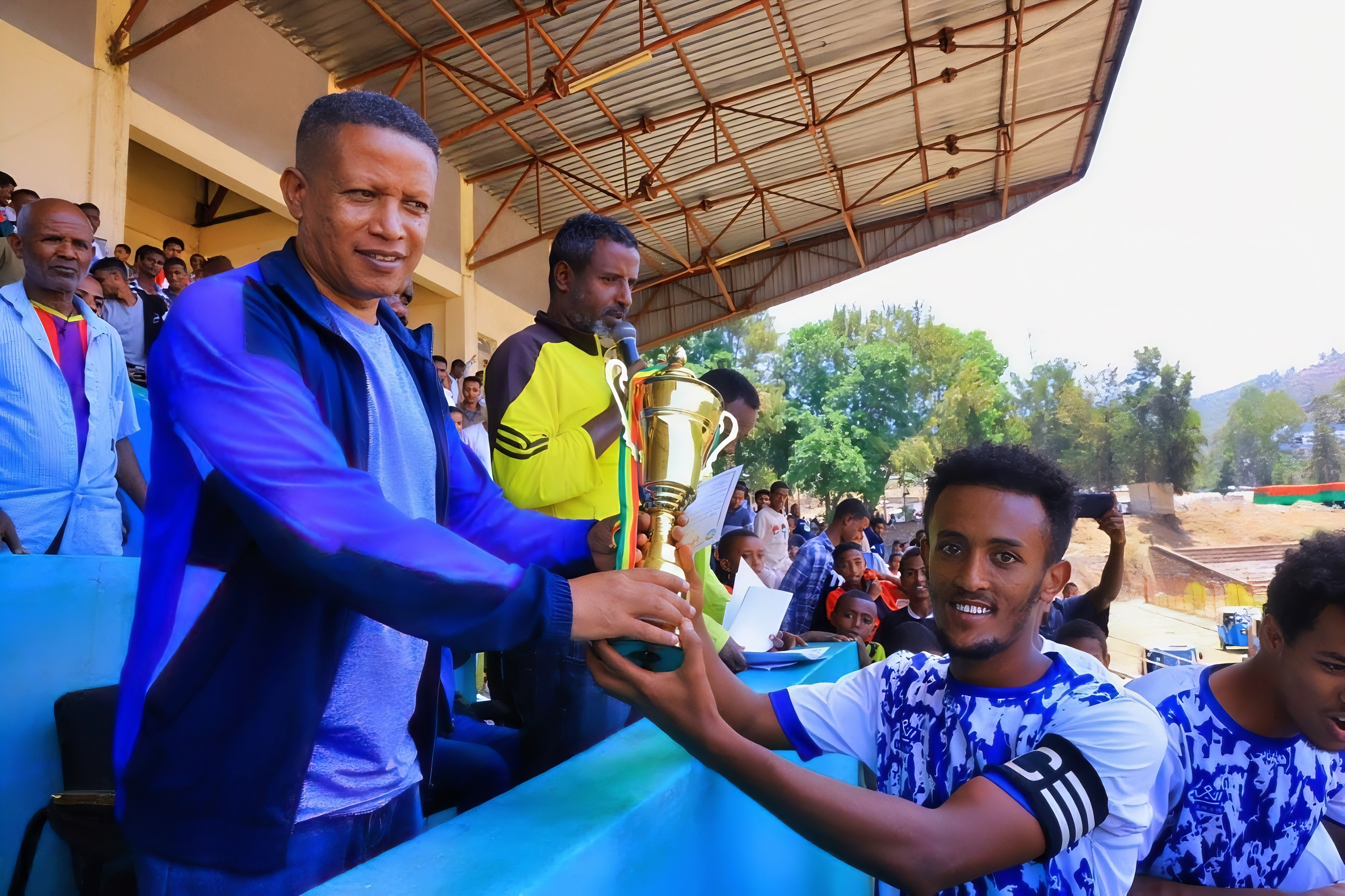
Community Support as a Catalyst for Success: The Power of Unity in Gondar’s Sporting Culture
In Gondar, sport is more than just a game—it is a shared experience that binds communities together, fosters collective pride, and inspires individuals to achieve greatness. As plans unfold for an ambitious three-month-long sports competition involving government employees and development organisations, Mr. Maru Muhammed, the Youth and Sports Director of Gondar City Administration, has underscored a vital ingredient for success: community support. Encouraging citizens to attend matches, cheer on participants, and actively engage with the events creates a vibrant atmosphere that not only motivates athletes but also strengthens the social fabric of the city. When people rally behind their teams, they become part of something greater than themselves—a movement that transcends individual interests and celebrates shared values.
The Role of Spectators in Elevating Performance
The energy of a live audience is unparalleled. Athletes often describe the roar of a cheering crowd as fuel that propels them to push harder, run faster, and aim higher. During the 9th All Gondar Sports Competition, this phenomenon was evident in every match and event. Whether it was the thunderous applause greeting Twfeq Hassan’s remarkable goal or the rhythmic chants echoing through the stadium during Arada Sub-City’s football clashes, the presence of enthusiastic spectators played a pivotal role in elevating performances.
For many athletes, knowing that their community is watching—and rooting for them—adds a layer of motivation that cannot be replicated in training sessions or isolated competitions. “When I hear the crowd cheering my name, I feel like I’m carrying the hopes of everyone who believes in me,” said Yohannes Tadesse, the standout long-distance runner from Azezo Tseda Sub-City. This sentiment underscores how community support transforms sport into a deeply personal yet profoundly communal endeavour.
Building Bridges Through Shared Experiences
Sport has a unique ability to bring people together, transcending barriers of age, gender, ethnicity, and socio-economic status. In Gondar, where sub-cities often have distinct identities and traditions, sporting events serve as neutral ground where these differences dissolve into a unified celebration of talent and effort. The upcoming three-month competition, which will feature government employees and members of development organisations, promises to further strengthen these bonds.
By attending matches and engaging with the events, citizens contribute to a sense of belonging that extends beyond the confines of the stadium. Families gather to watch games, friends debate strategies over coffee, and neighbours share stories of past glories and future aspirations. These interactions create lasting connections, reinforcing the idea that sport is not just about winning or losing—it’s about building relationships and fostering mutual respect.
Strengthening Community Ties Through Active Participation
While cheering from the sidelines is invaluable, true community support goes beyond passive attendance. It involves active participation, whether through volunteering, mentoring young athletes, or simply spreading awareness about the importance of sport. For instance, local schools and youth groups can organise viewing parties or discussions about key matches, encouraging younger generations to see themselves as part of the broader sporting ecosystem.
Moreover, businesses and civic organisations have a critical role to play in amplifying community engagement. Sponsorships, donations, and logistical support from entities like Gondar Printing Company demonstrate how public-private partnerships can enhance the reach and impact of sporting initiatives. By investing in these efforts, companies boost visibility for their brands and reinforce their commitment to social progress.
A Catalyst for Social Cohesion
Community support is particularly crucial in a diverse city like Gondar, where sub-cities often compete fiercely on the field but must coexist harmoniously off it. Sporting events provide a platform for resolving tensions and celebrating commonalities, turning rivals into allies. For example, the spirited rivalry between Arada Sub-City and Gondar University during the recent football final showcased healthy competition at its best. After the match, fans from both sides mingled freely, exchanging congratulations and sharing laughter—a testament to the unifying power of sport.
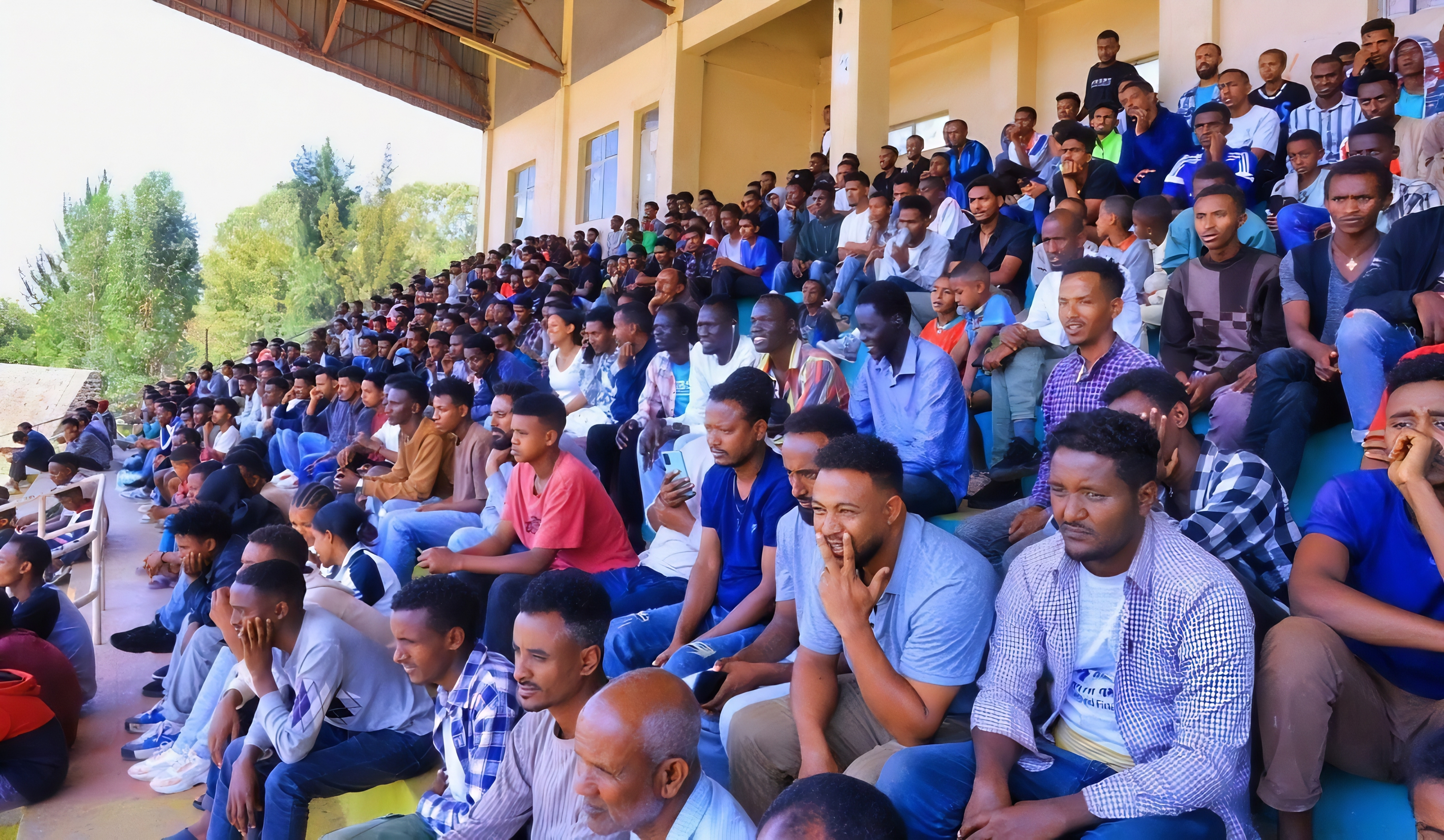
This cohesion extends beyond the immediate participants and spectators. Elders recount tales of past tournaments, passing down oral histories that connect generations. Meanwhile, children dream of emulating their heroes, inspired by the camaraderie and excitement surrounding the events. In this way, sport becomes a vehicle for preserving cultural heritage while embracing modern aspirations.
Inspiring Future Generations
One of the most profound impacts of community support is its ability to inspire future generations. When young people see their families, neighbours, and role models rallying behind athletes, they begin to understand the value of perseverance, teamwork, and dedication. Watching a packed stadium erupt in cheers for a local hero like Twfeq Hassan or witnessing the disciplined teamwork of Gondar University Football Club instils a belief that anything is possible with hard work and determination.
Furthermore, community involvement helps dismantle barriers to entry for aspiring athletes. By attending matches, purchasing tickets, or contributing to fundraising efforts, citizens ensure that resources are available to nurture talent across all sub-cities. This inclusivity ensures that no child feels excluded from pursuing their dreams due to lack of opportunity.
Conclusion: Becoming Part of Something Greater
As Gondar prepares for its next chapter in sporting excellence—the three-month-long competition involving government employees and development organisations—it is clear that community support will be the cornerstone of its success. Encouraging citizens to attend matches, cheer on participants, and actively engage with the events creates a virtuous cycle: motivated athletes perform better, inspired audiences grow larger, and communities grow stronger.
In essence, when people rally behind their teams, they are not merely supporting individuals or sub-cities—they are becoming part of something greater than themselves. They are contributing to a legacy of unity, resilience, and hope that defines Gondar’s identity. And as the echoes of cheers reverberate through the city’s streets, one thing becomes abundantly clear: sport has the power to transform lives, forge connections, and build a brighter future for all.
So, let us heed Mr. Maru’s call to action—for in doing so, we do not just celebrate sport; we celebrate the very essence of what makes Gondar extraordinary.
Private Sector Contributions to Sports Development: A Pillar of Progress in Gondar
In the bustling city of Gondar, where sport serves as a unifying force and a catalyst for social progress, the role of the private sector cannot be overstated. Corporate entities like Gondar Printing Company have emerged as vital partners in sustaining and amplifying local sports initiatives, bridging critical funding gaps and expanding outreach efforts. As highlighted by Mr. Amare Mesfin, General Manager of Gondar Printing Company, these collaborations exemplify how economic stakeholders can contribute meaningfully to societal advancement. By aligning their resources with the aspirations of the community, businesses are investing in sport and fostering a brighter future for Gondar as a whole.
Bridging Funding Gaps: The Financial Backbone of Sport
One of the most pressing challenges facing grassroots sports development in Gondar is the lack of consistent funding. Organising events like the 9th All Gondar Sports Competition requires significant financial resources—from securing venues and equipment to covering logistics and prize money. Without adequate support, many promising initiatives risk stagnation or collapse. This is where the private sector steps in, providing much-needed financial backing that ensures continuity and growth.
Gondar Printing Company’s involvement in the competition is a case in point. As a key sponsor, the company provided essential funding to cover operational costs, enabling organisers to focus on delivering high-quality events. According to Mr. Amare Mesfin, “Sport is not just about entertainment; it’s about building healthier, more cohesive communities. Our investment in these initiatives reflects our commitment to Gondar’s long-term prosperity.” Such statements underscore the dual impact of private sector contributions: they address immediate needs while laying the groundwork for sustainable development.

Beyond direct financial support, corporate entities often bring expertise in project management, marketing, and resource allocation. These skills help streamline operations and maximise the reach of sporting events, ensuring that they benefit the widest possible audience. For instance, Gondar Printing Company leveraged its printing capabilities to produce promotional materials, raising awareness about the competition and encouraging greater participation from both athletes and spectators.
Amplifying Outreach Efforts: Expanding the Reach of Sport
Private sector involvement does more than fill funding gaps—it amplifies outreach efforts, bringing sport to underserved areas and demographics. Through strategic partnerships, businesses can extend the reach of local sports initiatives, ensuring that opportunities are accessible to all. This inclusivity is particularly important in a city like Gondar, where disparities in infrastructure and resources often limit participation among certain sub-cities.
For example, Gondar Printing Company collaborated with local sports bodies to organise mobile coaching clinics in remote neighbourhoods like Azezo Tseda. These clinics brought expert trainers and equipment directly to communities that might otherwise struggle to access such resources. Similarly, the company supported inter-sub-city tournaments, creating platforms for athletes from diverse backgrounds to showcase their talents and gain exposure.
By prioritising inclusivity, these initiatives ensure that no aspiring athlete is left behind. They also foster a sense of ownership within communities, empowering residents to take pride in their local teams and events. As Mr. Maru Muhammed noted during the closing ceremony, “When businesses invest in sport, they are investing in people—and that investment pays dividends far beyond the playing field.”
Exemplifying Corporate Social Responsibility
The partnership between Gondar Printing Company and local sports bodies serves as a model of corporate social responsibility (CSR). In an era where businesses are increasingly expected to demonstrate their commitment to societal well-being, supporting sports development offers a tangible way to make a positive impact. By aligning their CSR strategies with community priorities, companies like Gondar Printing Company enhance their reputations while contributing to meaningful change.
This alignment benefits both parties: businesses gain visibility and goodwill, while sports organisations secure the resources needed to thrive. Moreover, when employees of these companies participate in events—whether as volunteers, sponsors, or enthusiastic spectators—they strengthen internal morale and foster a culture of giving back. For instance, staff members of Gondar Printing Company were actively involved in organising logistics for the competition, showcasing their dedication to the cause.
Strengthening Public-Private Partnerships
The success of Gondar’s sports initiatives underscores the importance of collaboration between public and private sectors. While government bodies provide regulatory frameworks and policy direction, private entities bring innovation, flexibility, and financial muscle to the table. Together, they create a robust ecosystem that supports athletes, coaches, and organisers alike.
Such partnerships also pave the way for long-term sustainability. By diversifying funding sources and reducing reliance on government budgets, local sports bodies can operate with greater independence and resilience. For example, revenue generated through sponsorships and ticket sales can be reinvested into infrastructure projects, such as building new tracks or renovating existing facilities. This self-sustaining model ensures that Gondar’s sporting culture continues to flourish even in challenging times.
Inspiring Broader Engagement
When prominent companies like Gondar Printing Company step up to support sport, they inspire others to follow suit. Smaller businesses, non-profits, and individual philanthropists are encouraged to contribute in ways big and small, creating a ripple effect of generosity and engagement. This collective effort amplifies the impact of private sector involvement, turning isolated acts of sponsorship into a movement for social progress.
Moreover, these contributions send a powerful message to young athletes: their dreams matter, and there are people and organisations willing to invest in them. Whether it’s a child kicking a ball in the streets of Arada or a teenager training tirelessly at the Athletics Training Centre, knowing that the private sector stands behind them instils confidence and determination.
Conclusion: A Shared Vision for Gondar’s Future
Private sector contributions to sports development in Gondar represent more than just financial transactions—they embody a shared vision for the city’s future. By bridging funding gaps, amplifying outreach efforts, and exemplifying corporate social responsibility, businesses play a pivotal role in nurturing talent, fostering unity, and driving social progress.
As Gondar looks ahead to future competitions and initiatives, the importance of continued private sector involvement cannot be overstated. Companies like Gondar Printing Company have already demonstrated the transformative power of their support, proving that sport is not just a leisure activity but a cornerstone of community development. When businesses and sports bodies work hand in hand, they create opportunities that transcend sport itself, empowering individuals and strengthening the bonds that hold Gondar together.
In the end, this collaboration reminds us of an enduring truth: when we invest in sport, we invest in humanity. And in Gondar—a city defined by its resilience, diversity, and spirit—such investments promise to yield returns far greater than any trophy or medal.
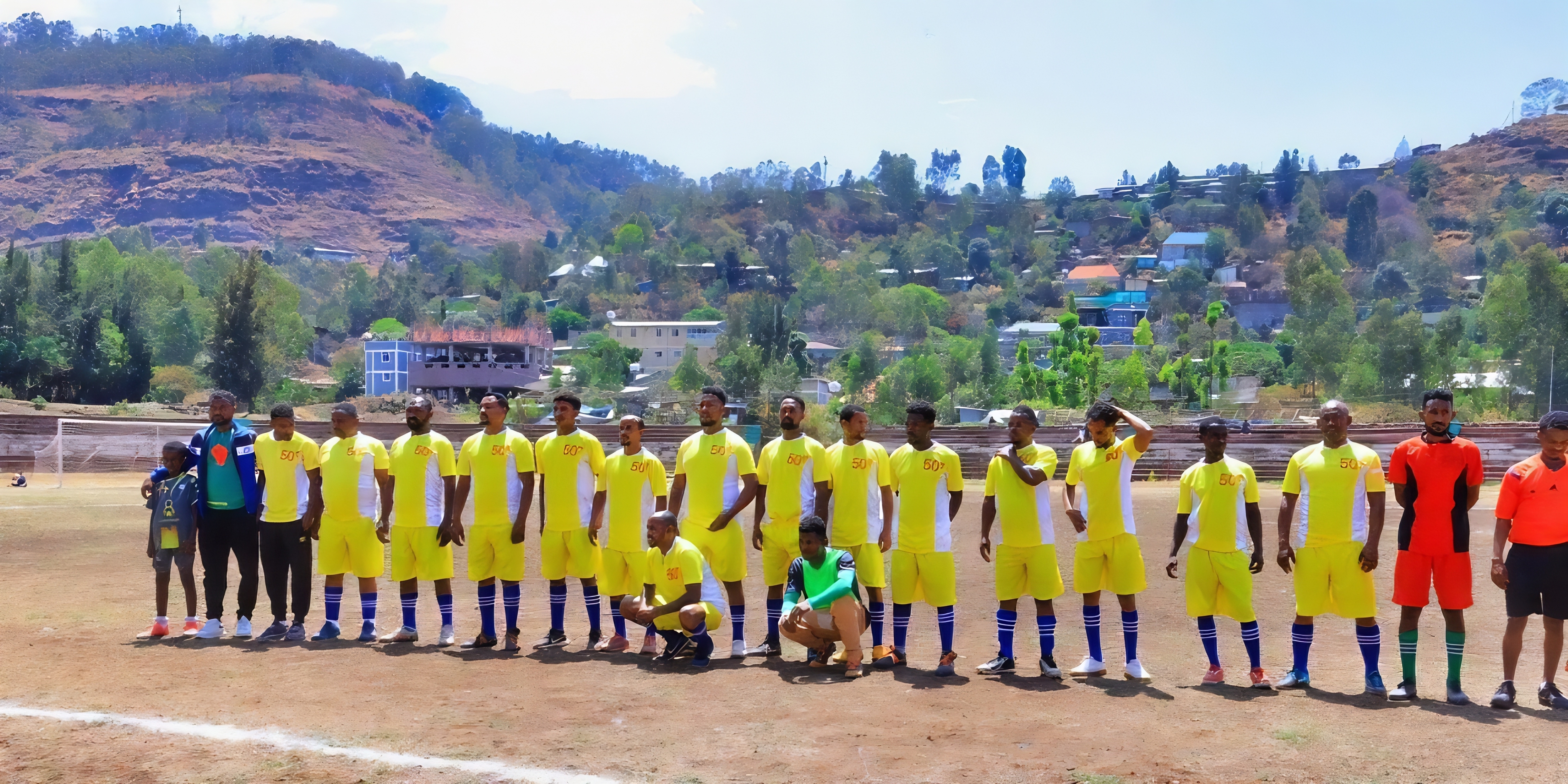
Addressing Counterarguments: Balancing Sport and Socio-economic Priorities in Gondar
While the 9th All Gondar Sports Competition has been celebrated for its role in fostering talent, unity, and community pride, some critics may question whether allocating resources to such events is justified in light of pressing socio-economic challenges. In a city like Gondar—where access to healthcare, education, and employment remains uneven—prioritising sports could be considered a diversion from more urgent needs. However, evidence from both local and global contexts suggests that investing in sports yields significant long-term benefits, addressing broader societal goals while simultaneously tackling many of the issues critics highlight.
The Case Against Sports Investment
Critics of large-scale sporting events often argue that funds directed towards infrastructure, logistics, and prize money could instead be used to address immediate socio-economic concerns. For instance, they might contend that improving schools, building clinics, or creating job opportunities should take precedence over constructing football pitches or organising competitions. From this perspective, sport is viewed as a luxury—a “nice-to-have” rather than a necessity—particularly in communities where basic needs are still unmet.
This argument is not without merit. It reflects a legitimate concern about resource allocation and the need to prioritise initiatives that directly impact people’s daily lives. However, it overlooks the multifaceted ways in which sport can contribute to development, acting as a catalyst for positive change across various domains.
Long-Term Benefits of Investing in Sport
Contrary to the notion that sport is merely an extracurricular activity, research and real-world examples demonstrate its profound impact on health, education, and civic engagement—all of which are critical components of sustainable development.
- Improved Health Outcomes
Physical activity is one of the most effective ways to combat non-communicable diseases, which are increasingly prevalent in Ethiopia and other developing nations. By promoting active lifestyles through competitions and training programmes, events like the All Gondar Sports Competition encourage individuals to adopt healthier habits. This, in turn, reduces the burden on healthcare systems by preventing illnesses before they arise. Moreover, initiatives supported by private sector partners like Gondar Printing Company often include awareness campaigns on nutrition and wellness, further amplifying their impact. - Enhanced Educational Engagement
Sport has also been shown to improve educational outcomes, particularly among young people. Participation in athletics fosters discipline, time management, and teamwork—skills that translate directly into academic success. Schools in Gondar that incorporate sport into their curricula report higher attendance rates and better performance in exams. Additionally, successful athletes often serve as ambassadors for education, inspiring students to stay in school and pursue excellence both on and off the field. - Increased Civic Participation
Sporting events create opportunities for social interaction, breaking down barriers between different groups within society. In Gondar, where sub-cities often have distinct identities, competitions bring people together, fostering mutual respect and understanding. Furthermore, when citizens rally behind their teams, they develop a sense of ownership and responsibility for their community—a mindset that extends beyond sport into civic life. Engaged citizens are more likely to participate in local governance, advocate for improvements, and work collectively toward common goals.
Athletes as Role Models: Inspiring Excellence Beyond the Field
Another compelling argument against criticising sports investment lies in the transformative power of role models. Successful athletes from Gondar, such as Twfeq Hassan or Yohannes Tadesse, embody values such as perseverance, resilience, and hard work. Their stories resonate deeply with young people, who see them as proof that greatness is attainable despite adversity.
These athletes often use their platforms to promote positive messages about education, health, and community service. For example, during the closing ceremony of the 9th All Gondar Sports Competition, several medal winners emphasised the importance of staying focused on academics alongside athletic pursuits. Such advocacy reinforces the idea that sport is not just about physical prowess but also about personal growth and contribution to society.
Leveraging Sport for Economic Growth
Critics concerned about economic priorities may also fail to recognise the potential of sport as a driver of economic activity. Hosting competitions attracts visitors to the city, boosting local businesses such as hotels, restaurants, and shops. Sponsorships from companies like Gondar Printing Company inject capital into the economy, creating jobs and stimulating innovation. Moreover, successful athletes can become brand ambassadors, attracting national and international attention to Gondar and positioning it as a hub for talent and opportunity.
A Holistic Approach to Development
Rather than viewing sport as a competing priority, it is essential to adopt a holistic approach that integrates it into broader development strategies. For instance, funds allocated to build sports facilities can double as community centres, hosting educational workshops, health screenings, and cultural events. Similarly, partnerships between government bodies, private companies, and non-profits ensure that resources are utilised efficiently, maximising their impact on multiple fronts.
In Gondar, this integrated model is already taking shape. The collaboration between public institutions, private sponsors, and grassroots organisations during the 9th All Gondar Sports Competition exemplifies how diverse stakeholders can come together to achieve shared objectives. By leveraging sport as a tool for development, the city addresses socio-economic challenges while nurturing its human capital—the ultimate foundation for progress.
Conclusion: Sport as a Pathway to Progress
While critics may argue that investing in sports diverts attention from pressing socio-economic issues, the reality is far more nuanced. Evidence shows that sport contributes significantly to improved health, enhanced education, increased civic participation, and economic growth—all of which align with Gondar’s developmental priorities. Moreover, the inspirational power of athletes serves as a beacon of hope, motivating young people to strive for excellence in all aspects of life.
By embracing sport as a pathway to progress, Gondar demonstrates that addressing immediate needs and fostering long-term aspirations are not mutually exclusive. Instead, they are complementary facets of a comprehensive strategy aimed at building a healthier, more educated, and more united community. And in doing so, Gondar proves that sometimes, the simplest acts—like kicking a ball or running a race—can spark the most profound changes.
Conclusion: Beyond the Final Whistle
The 9th All Gondar Sports Competition was far more than a series of matches, races, and accolades—it was a celebration of humanity’s shared values, brought to life through the universal language of sport. From identifying promising athletes who one day may represent their nation on global stages to honouring the unsung heroes working tirelessly behind the scenes, the event encapsulated the multifaceted impact of organised sports. It united communities, inspired young dreamers, and showcased the transformative power of collective effort. As Gondar looks ahead to future competitions, it stands as a shining testament to the enduring strength of community-driven initiatives—a model that other cities across Ethiopia and around the world would do well to emulate.
Sport as a Mirror of Society
At its core, sport reflects the best aspects of society: perseverance in the face of adversity, teamwork in pursuit of a common goal, and hope for a better tomorrow. In Gondar, these principles were evident in every moment of the competition. The resilience displayed by Azezo Tseda Sub-City’s long-distance runners mirrored the grit required to overcome daily challenges in their hilly terrain. The camaraderie between Arada Sub-City and Gondar University football fans demonstrated how healthy rivalries can foster unity rather than division. And the dedication of coaches, referees, and volunteers highlighted the importance of collaboration in achieving success.
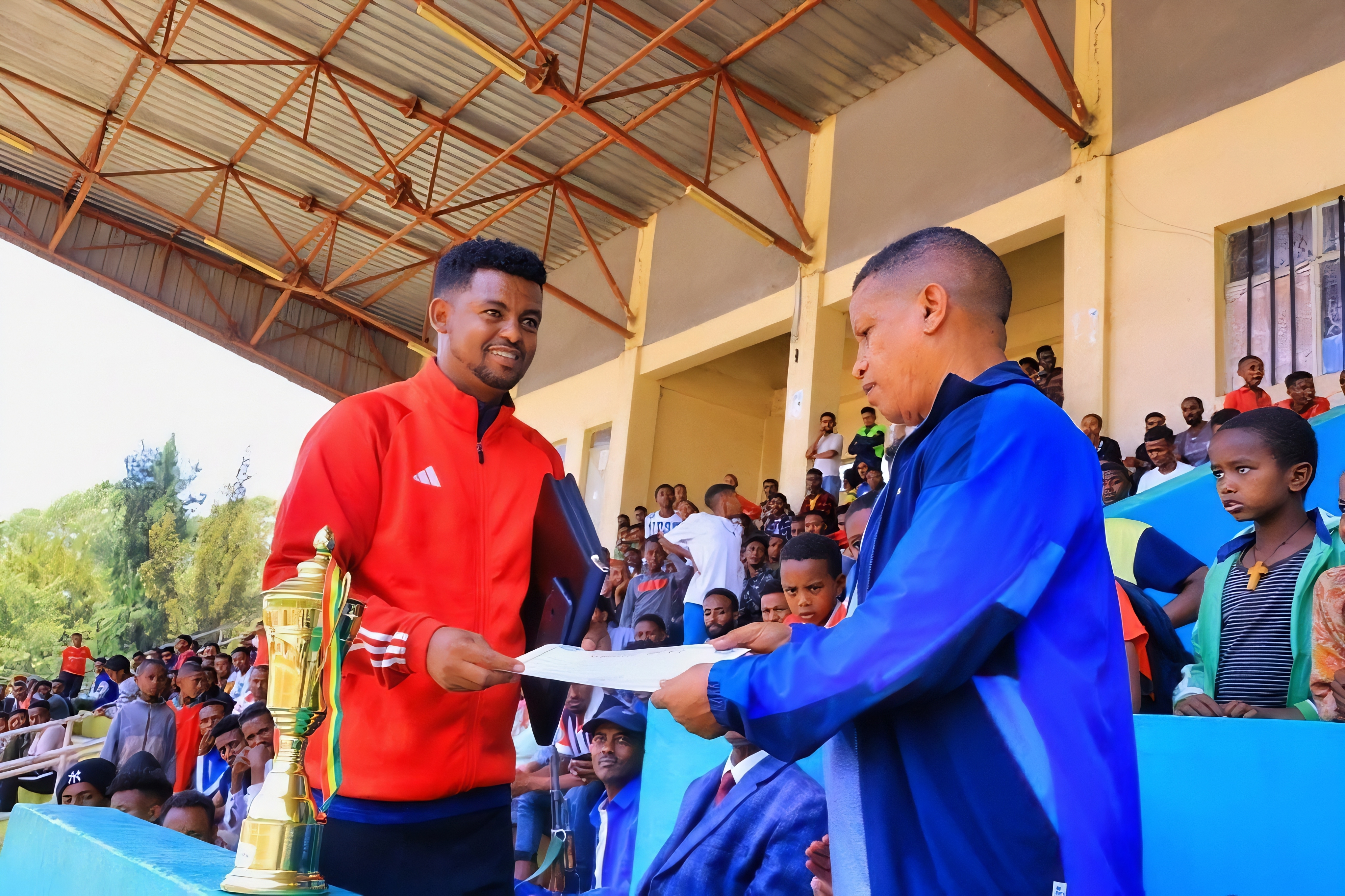
These stories remind us that sport is not merely an escape from reality but a microcosm of it—an arena where individuals and communities can confront obstacles, celebrate achievements, and envision possibilities. By investing in sport, Gondar has invested in its people, creating pathways for growth and transformation that extend far beyond the confines of the playing field.
Lessons for Other Cities: Harnessing the Power of Sport
As the final whistle blew on this year’s competition, spectators left with more than just memories of thrilling victories and remarkable performances—they departed with a renewed sense of purpose. Gondar’s approach to sports development offers valuable lessons for other cities seeking to harness the transformative potential of sport:
- Grassroots Development Matters
Identifying and nurturing talent at the grassroots level ensures a steady pipeline of skilled individuals ready to compete at higher levels. Cities should prioritise inclusive programmes that provide opportunities for all, regardless of background or resources. - Community Engagement is Key
Encouraging citizens to attend matches, volunteer, and support local teams fosters a sense of belonging and strengthens social ties. When people rally behind their athletes, they become active participants in shaping their city’s future. - Public-Private Partnerships Drive Success
Collaborations between government bodies, private companies, and non-profits amplify the reach and impact of sporting initiatives. Businesses like Gondar Printing Company show how economic stakeholders can contribute meaningfully to social progress. - Infrastructure Builds Foundations
Investing in facilities such as tracks, gyms, and training centres ensures equitable access to resources, enabling athletes from all areas to thrive. Such investments also create spaces for broader community activities, enhancing overall quality of life. - Role Models Inspire Change
Celebrating successful athletes and their journeys inspires young people to pursue excellence both on and off the field. These role models serve as ambassadors for education, health, and civic responsibility, reinforcing the idea that sport is a vehicle for holistic development. - Sport Transcends Boundaries
Sporting events bring together diverse groups, breaking down barriers and fostering mutual respect. They remind us that despite our differences, we share common aspirations and dreams.
Building a Brighter Future Through Sport
So, the next time you hear the roar of a crowd or see a young athlete sprinting toward the finish line, take a moment to reflect on what lies beneath the surface. It’s not just about the game—it’s about building a brighter future, one kick, one stride, one victory at a time. Every goal scored, every race won, and every trophy lifted represents countless hours of hard work, sacrifice, and belief—not just from the athletes themselves but from the entire ecosystem that supports them.
In Gondar, this vision is alive and thriving. The city’s commitment to using sport as a tool for social progress serves as a blueprint for others to follow. Whether it’s Addis Ababa hosting national tournaments or smaller towns organising inter-community leagues, the principles remain the same: inclusivity, collaboration, and perseverance.
Final Thought: A Call to Action
How can other cities across Ethiopia—and indeed the world—learn from Gondar’s example? The answer lies in recognising sport not as a luxury but as a necessity—a powerful mechanism for driving change. By embracing the lessons of Gondar, cities everywhere can unlock the transformative potential of sport, empowering individuals, strengthening communities, and building a legacy of hope and resilience.
And so, as the echoes of cheers fade into memory, let us carry forward the spirit of Gondar—a spirit defined by unity, determination, and unwavering optimism. For in the end, sport is not just about winning; it’s about becoming the best version of ourselves and inspiring others to do the same.
Ethiopia Autonomous Media
Ethiopia Autonomous Media








